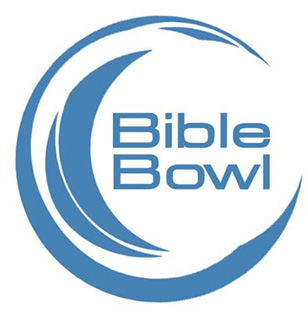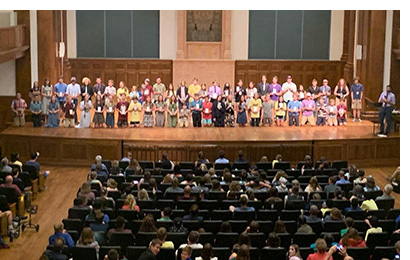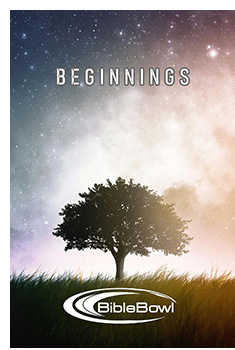
By Caroline Vandenbree
Less than 10 percent of children and young adults ages 10 to 25—the so-called Generation Z—are motivated to read the Bible, according to the Christian Post. This percentage includes the young people who faithfully attend church.
Reflecting on my own spiritual journey as part of Generation X—people born 1965 to 1980—I must confess that outside of church activities, I was not motivated to read the Bible either. When I was a teenager, I was motivated to be popular. I wanted to be known. I wanted a clear identity of who I was . . . I wanted to be validated.
I thought the one clear path for validation and identity was through beer parties.
Most young people today want to be known. Most young people are looking for something that gives them value. As a young teen, I thought that value would come from being popular among my peers. Teenagers in my school, including those in my youth group, found their value in beer parties. I started seeking how to get an invitation to them.

A DIFFERENT TYPE OF INVITATION
The summer before my freshman year of high school, I finally got the invitation . . . but it wasn’t to a beer party. A girl at church camp invited me to join Bible Bowl. She said it was fun to memorize the Bible and that travel was involved. I liked traveling, so I joined our church’s team that fall.
It changed my life forever.
Since that invitation, I became known among the Bible Bowl community, and I was a valuable member of my team. I discovered the value of memorizing Bible verses, and my faith was strengthened. My team worked together, and we won the National Championship. Our team was rare, however, for we all worked to memorize the text and become proficient at the game. Most teams were not like us.
SPEAKING WITH JOSIAH GORMAN
Since the time I played in Bible Bowl and up to the 2021-22 season, most teams were created with one strong player—a strong “buzzer”—and other players who would participate in the bonuses. Some teams had young people whose only value in the game was to participate in a bonus.

National Bible Bowl director Josiah Gorman said Bible Bowl decided on some key changes after he visited other Bible quiz ministries. The changes implemented for the just-concluded season create situations in which every single member of the team is valuable.
The changes in Bible Bowl serve to reflect the value in every part of the body of Christ. Every team member has a chance to buzz-in with an answer. After a player buzzes correctly so many times, that player can buzz-in no more during that game. If any player on any team incorrectly answers a question, any player may get a chance at the “rebound” until the question is answered correctly. The novice players have a chance to buzz, and they are encouraged to buzz whether they are right or wrong.
This new method creates a strong identity within our young people. We find our identity in Christ when we understand what the Word of God says. Since all team members must participate in both buzzing and bonus questions, all students take time to study God’s Word. The students know the text so well, they can quickly answer straightforward questions.
Speaking as a youth pastor, this format would have built unity in my Bible Bowl teams and biblical literacy for all the players in our round robin. This new format brings equity for all players in any region.
IDENTITY IN BIBLE BOWL
As a player in the early 1980s, my team was not known by our church name but by our first names. I was a shy teenager in school and in my youth group, but in Bible Bowl, young people all over the country knew my name.
Beyond that, I created friendships that are still intact today more than 30 years later. The Bible Bowl ministry still creates a place for young people to develop and build such friendships.
Each Bible Bowl year is divided into two seasons. The fall season is from October to December, ending with a National Tournament at a Christian college. The second season is from January to June, also concluding with a National Tournament. This creates a ministry that is sympathetic to the fact that young people have various interests; players can participate in either the fall season, spring season, or both seasons. During both fall and spring, Bible Bowl incorporates fun activities for young people to connect with other players on other teams.

This new system for Bible Bowl fosters a new and improved team mentality. Since every player must participate, the community built on each team is stronger than ever before. Each person is a valuable part of their team and community, which helps create a strong identity in Christ and a strong self-image. No one sits there and doesn’t participate. The life of Christ is not made up of observers but doers. The current Bible Bowl ministry is creating doers.
AN INVITATION FOR BIBLE BOWL
I never received an invitation to a beer party, and after I joined Bible Bowl, I didn’t want one. I didn’t need popularity in school. I needed true community in Christ. Bible Bowl brought that.
Our young people in our churches need community, biblical literacy, and a place to belong. They will choose what the world gives or what the church gives. I encourage you to start a Bible Bowl ministry so your church can offer your children a better choice.
I am answering the call to start a Bible Bowl round robin again here in the West (Southern California and Arizona). May we invite our young people to a ministry that will have life-changing results?
Caroline Vandenbree grew up in Florida. She joined the newly formed Bible Bowl team at Daytona Christian Church in 1980. In 1984, during her senior year, Charlie, Ronnie, and Caroline (aka Daytona Christian) became National Bible Bowl Champions. After high school, she attended Cincinnati Christian University for free (thanks largely to Bible Bowl), and in 1988 became the first person in her family to graduate from college. She moved to Southern California and became a teacher, volunteered with Bible Bowl, and soon became a youth pastor with Eastside Christian Church in Anaheim (thanks to Ben Merold). She served for 16 years as a full-time youth pastor and always had a Bible Bowl team. In 2005-07, she was the coordinator for the California/Arizona Bible Bowl Round Robin. From 2016 to 2019 she volunteered with National Bible Bowl and wrote questions. She is currently approaching churches in Southern California and Arizona to start a Bible Bowl Round Robin. (If interested, contact her at CarolineMV13@gmail.com.) She is now a full-time teacher, a writer, and she serves with Mosaic church in Hollywood.

Thank you for sharing your experience with Bible Bowl. It really is such an amazing ministry that has touched so many lives. I started a team this past year. It has truly been amazing to watch students flourish under the new format. I will be praying for God’s guidance and direction, as you begin a Bible Bowl program in California.
I played Bible Bowl for 10 years of my life, and I have to disagree with this article. Bible Bowl isn’t about joining a program to become “known among the Bible Bowl community” or for “young people all over the country to know my name.”
I won a national championship during my years as a “strong buzzer,” but I would rather have been a player “whose only value in the game was to participate in a bonus” than to be involved only for a sense of accomplishment or feeling of notoriety.
Value in Bible Bowl doesn’t come from being known or having the most possible participation at the game table. In fact, my best memories of Bible Bowl are those of traveling with friends, having deep discussions about the text, and ending nights at tournaments in worship.
A strong Christian community isn’t created through equal participation, but through a diverse body of believers with individual strengths (1 Corinthians 12). The focus of Bible Bowl should be community. We should be reminding students of that. Students don’t grow in their faith at the game table, but when they are with peers at tournaments or studying the text and receiving wisdom from spiritual leaders in their lives.
We started a team about 3 years ago. It has been a great experience, especially this past year with the new format — we had students take off like never before. We should have 3 teams this year and I’ve never seen Bible Bowl where all the students are so interested and excited to go back to nationals. We are working on growing the round robin for Eastern Ohio, Southwest Pennsylvania, and parts of West Virginia. Jason 412-849-3819
Bible Bowl is a great game that leaves a lasting impact on people’s lives. The close connection with Scripture and with other players & coaches has helped mold our six children. Find or form a team and encourage the young people in your church to play. National Bible Bowl will help you get started. The value of this game for young people’s lives keeps me coaching.
So glad to see this article regarding Bible Bowl. I didn’t know whether it still existed.
That is a wonderful activity. It can start a young person to realize the value in studying the Bible.
God bless you for doing this. Our “kids” deserve better than what they are getting – being taught – today.